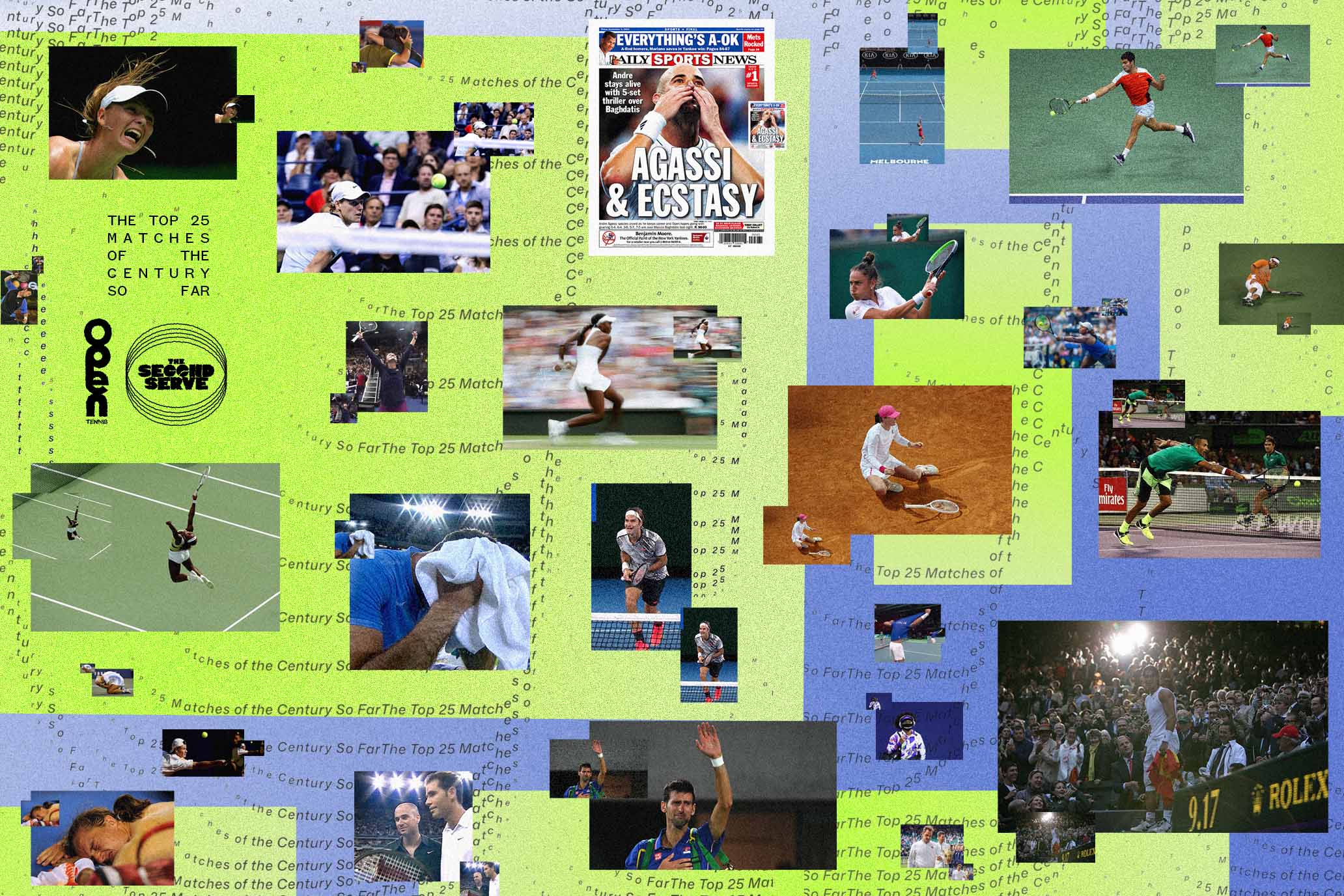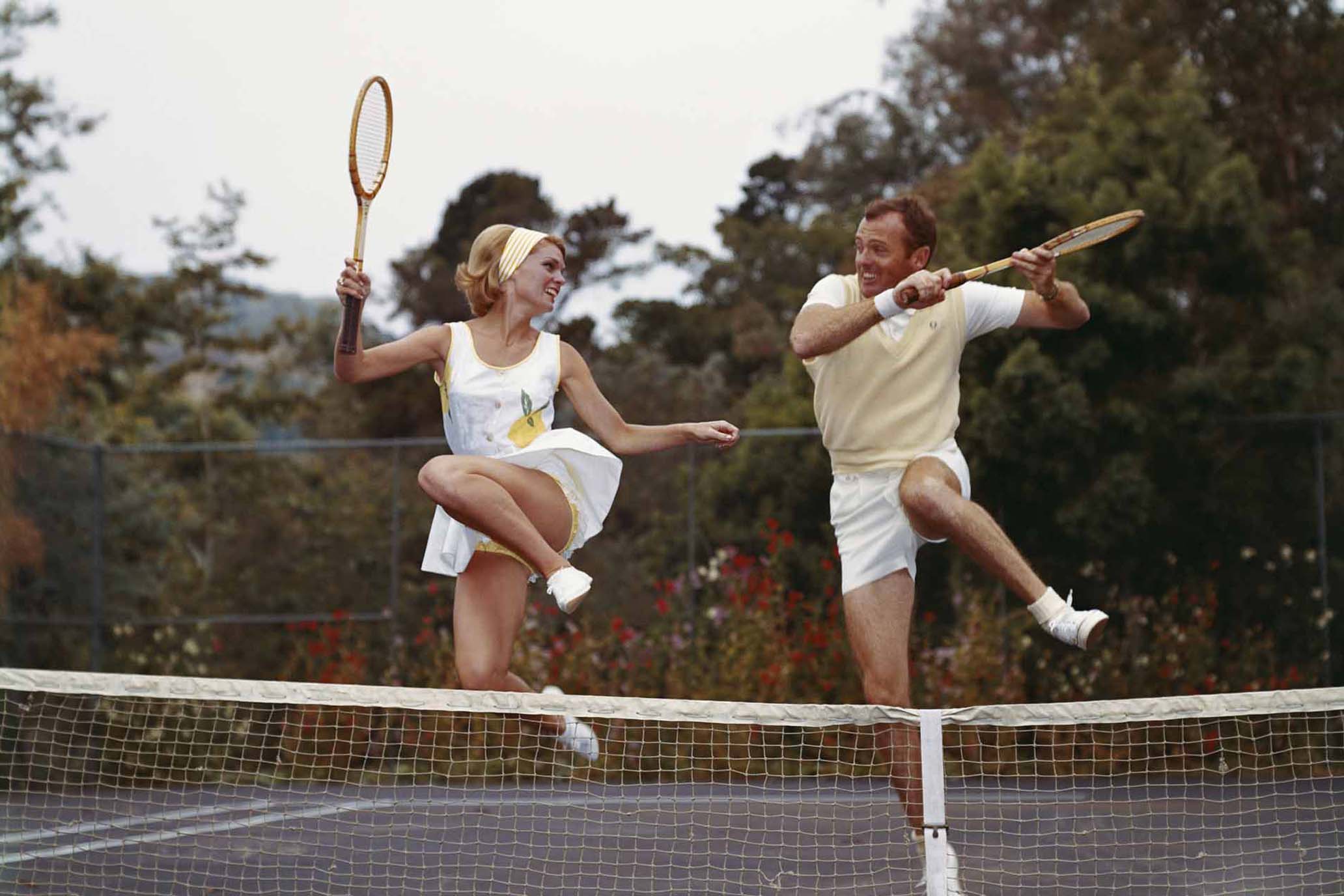The Beef Bracket
The Beef Bracket
Testy exchanges at the Paris Olympics.
Testy exchanges at the Paris Olympics.
By Giri NathanAugust 2, 2024

Iga Swiatek gets a lecture from Danielle Collins at the Olympics. // AP

Iga Swiatek gets a lecture from Danielle Collins at the Olympics. // AP
As far as tennis is concerned, this Olympics has been a beef Olympics. So much beef on the singles court, most of it inscrutable, all of it involving the U.S. contingent in some way.
The only one that I fully understood: Coco Gauff’s beef with the umpire in her quarterfinal versus Donna Vekic. Gauff pleaded for a hindrance call after a corrected line call, didn’t get it, and the ensuing argument dragged on for nearly five minutes and brought her to tears. She lost the match two games later. It’s the third time this year we’ve seen this particular Gauff vs. umpire beef, following similar incidents at Roland-Garros in June and in Dubai in February. I don’t think this beef was warranted—the umpire appeared to make the correct call, which was quite difficult in real time—but I at least get the core of Gauff’s complaint, and I get why video review would smooth over these situations. It was a messy and draining scene. For a 20-year-old who spends almost the entirety of her time in the public eye so preternaturally composed, it’s a strange emerging pattern.
Forget the umpires, though—the player-to-player beef in the women’s draw has been far more compelling, if far less parseable. This is the stuff of pure WTA Mad Libs: “audacious smack talk between Qinwen Zheng and Emma Navarro at the Paris Olympics.” To my untrained eye, nothing particularly scandalous occurred during the actual third-round match between these two. All that can be said is that it was competitive. Zheng went down match point at 3–5 in the second set before winning 6–7(7), 7–6(4), 6–1. Afterward, Zheng celebrated in unremarkable fashion and approached the net for a handshake. Navarro met her with a smile (only later revealed itself as sarcastic), held on to Zheng’s hand, and began a long tirade, shaking her head. I’m sad the camera angle was so poor, because the online lip-readers would have reveled in this. Fortunately the players each summarized that conversation for the press. “I just told her I didn’t respect her as a competitor,” Navarro told AFP. “I think she goes about things in a pretty cutthroat way. It makes for a locker room that doesn’t have a lot of camaraderie, so it’s tough to face an opponent like that, who I really don’t respect.” That’s about as vicious remark as I’ve heard on the tour in a decade, and it’s coming from two players I don’t remotely associate with the art of beef.
Zheng also offered her own account, per the AFP. “She told me she doesn’t know how I have a lot of fans,” she said. “It looks like she’s not happy with my behavior towards her. If she’s not happy about my behavior, she can come and tell me. I would like to correct it to become a better player and a better person.” Setting aside the rest of the absurdity, it is funny for Navarro to wonder how a top 10 tennis player belonging to the most populous ethnic group on earth could possibly have a lot of fans. I also laughed at this ice-cold line from Zheng: “I’m glad that she told me that. I will not consider it an attack because she lost the match.”
Every additional line I read about this exchange hurled me further into the depths of noncomprehension. How bad could Zheng’s contribution to locker room “camaraderie” possibly be? Shoving people into lockers and giving them noogies? And is Iga Swiatek her partner in crime? Because this wasn’t the only opaque reference to “locker room” conduct in this week’s beef. On paper, a quarterfinal pitting Iga Swiatek against Danielle Collins is a more sensible environment for beef. Swiatek has a history of gamesmanship—stalling the server, flailing her limbs wildly before the opponent plays a passing shot, the usual bathroom-break high jinks—that have slowly crept into the popular tennis discourse. Danielle Collins has a history of…being Danielle Collins. She yells a lot. Louder than anyone to have ever played pro tennis, probably? It’s a combustive pairing. They also have some history. Swiatek rose from her grave with a double break in the third set to deny Collins what would’ve been a huge win in the second round of this year’s Australian Open. Swiatek then destroyed her in their next matchup at Indian Wells.
Unlike Navarro–Zheng, this match had some outwardly contentious moments. Early in the first set, Collins beaned Swiatek in the stomach at close range, leaving her doubled over. At the end of the second set, Swiatek took a leisurely nine-minute bathroom break, saying after the match that she’d asked an official about the time limit and was told there wasn’t one. Early in the third set, Collins was bouncing the ball, ready to serve, when Swiatek held her racquet up as if to wait for some fans to stop moving around. “There’s, like, no one behind me,” Collins said, audible on the court mics. “Play at the server’s pace.” That particular delay method is a Swiatek staple, and certain oppositional fan bases out there were thrilled to see a player acknowledge it aloud. Collins retired at 2–6, 6–1, 1–4, citing an abdomen injury, and the ensuing handshake was a disaster. Collins said something that left Swiatek visibly agitated and confused. She sort of elaborated in the press, though I’m going to need a native speaker of Collinsese to explain to me what any of this means:
“I told Iga she didn’t have to be insincere about my injury. There’s a lot that happens on camera, and there are a lot of people with a ton of charisma and come out and are one way on camera and another way in the locker room. And I just haven’t had the best experience, and I don’t really feel like anybody needs to be insincere. They can be the way that they are. I can accept that, and I don’t need the fakeness.” I need the realness too! You guys have got to be way less elliptical if you’re going to get this spicy. Swiatek, for her part, said she had no idea what she was talking about either.
As fate would have it, this was the beef half of the bracket, and the two beefed-with players would meet in the semifinal with a guaranteed medal at stake. Zheng, who had just retired Angelique Kerber with a firecracker quarterfinal win, took on Swiatek on Thursday. History was not in Zheng’s favor, on multiple levels. Swiatek came into the match with a 25-match winning streak on these courts, extending back to the 2022 French Open. At that tournament, a teenage Zheng, yet to break out on tour, took one tiebreak set off of Swiatek before getting wiped out. In the years since, Zheng has since become an elite player and Australian Open finalist, but she still hadn’t figured out that essential puzzle: 0–6 against Swiatek. That changed on Thursday. Zheng ran away with the first set and leaped out of a double-break deficit in the second to claim her first win in the topspinniest matchup on the WTA. A devastated Swiatek wept and said she “blew it,” before presumably going back to terrorizing her peers with alleged insincerity.” She won the bronze medal match on Friday, but didn’t celebrate it. Congrats to Queen-wen, who is the first Chinese woman ever to make the Olympic singles final. Win or lose, she must kindly explain what the hell is going on in that locker room.

The Hopper
—Andy Murray has finally retired.
—And so has Angelique Kerber.
—Carlitos has withdrawn from Montreal.
—CLAY Tennis remembers the time Novak abandoned his partner.
—Rafa and Novak play one for the road, via Giri.
—The Washington, D.C. ATP tournament is in full swing.
—Some schedule changes to the WTA’s China Swing.

SIGN UP — YOU'RE ONLY AS GOOD AS YOUR SECOND SERVE.
RECOMMENDED
Big House Boris
BOOK REVIEWS


